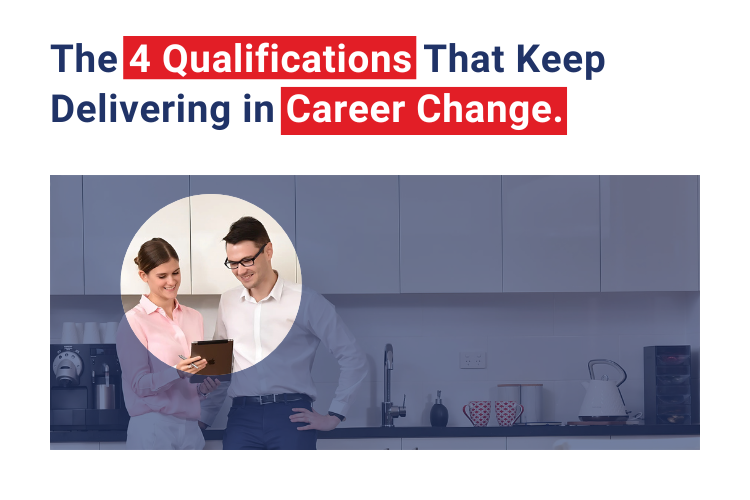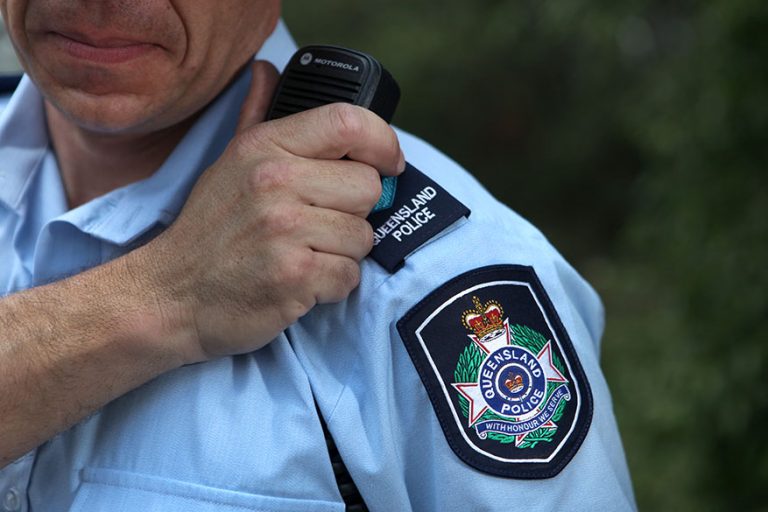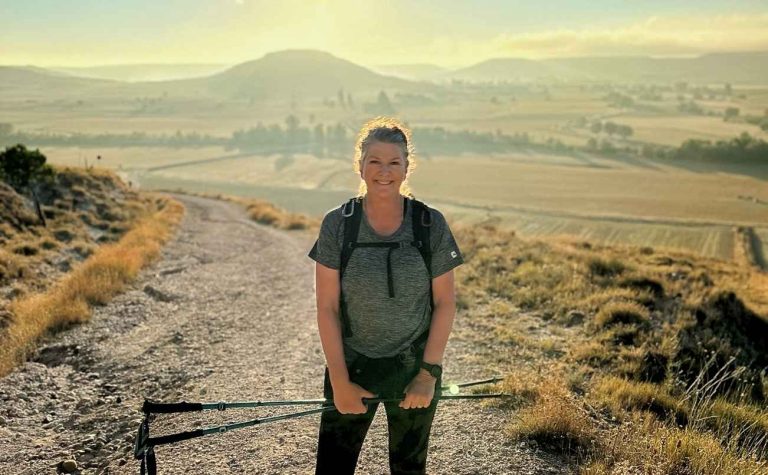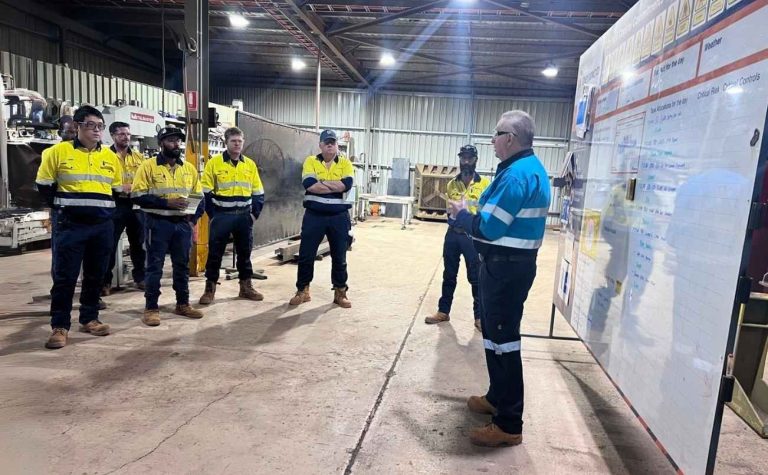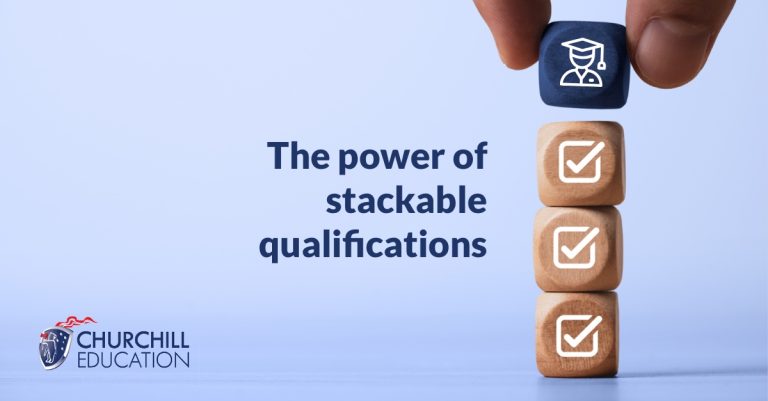In the following story Churchill Education co-founder Tricia Velthuizen shares the career change story of husband and co-founder, Randall Smith. It is a story of PTSD, depression, loss of identity, anger and blame. But more than that, it is a story of forgiveness, growth, compassion, new chapters and better days. We hope it brings some light to your day. Please share it with friends or colleagues who might need a reminder that there is light at the end of the tunnel.
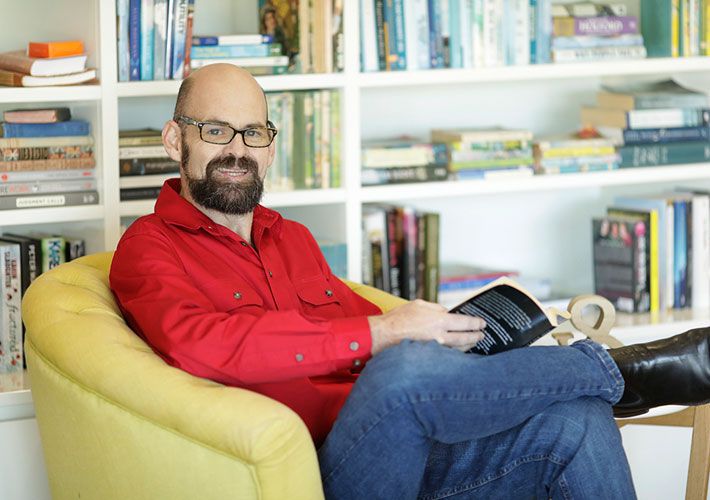
Listen to this story on our podcast…
Career Change, PTSD & Better Days
Sometimes, life brings you the final chapter to a book you thought you had finished.
When Randall first went on leave from the Queensland Police Service, he was low. Depression had set in and the light in his eyes was dull, barely there. He was a stranger to me.
Whilst Randall’s Post Traumatic Stress Disorder (PTSD) developed over many years, the last year of his service brought him to breaking point. The visible face of that last year of service in 2004 was a senior ranking officer in the Queensland Police, who would yell abuse in Randall’s face. Over time my otherwise easy-going husband was reduced to a shell.
This was a man who in years gone by had mentored Randall as a young officer, and now seemed determined to break him. In our minds, it was a betrayal on every level.
Of course, the senior officer had a name but, in my mind, his name was always accompanied by a feeling.
I loathed him and raged against him. I blamed him for Randall’s loss of career, for his loss of confidence, for our fears for the future.
I had been seconded to Policy in the Department of Justice and Attorney-General and on the day I was told I had to attend a meeting with this man present, I told my boss: don’t send me in there because you will have to sack me afterwards.
It was the unfinished business with this man that I held onto for many years, well past Randall’s official retirement, Churchill’s commencement and ultimately, Randall’s recovery.
Owning our lives – the good, the bad, the ordinary
But I held onto it alone. Yes, for a time, when Randall was on sick leave, Randall held it with me too. Until one day, while we were planning to start our own business (a business that became Churchill Education) Randall walked into a presentation by Allan Pease, Australia’s leading expert on body language – or in Randall’s mind, one of Australia’s funniest blokes.
Sitting in that room, knowing that his policing career had come to an end and searching for a new identity, Randall listened as Allan Pease talked about owning our lives – the good, the bad, the ordinary. Not letting anyone else determine our future through blaming them for what had gone wrong.
Randall decided that day he was going to own his story, that he was going to never blame this man again for where he found himself, but in himself he was going to thank him for opening the door to a new future, a fresh opportunity.
When Randall returned home from that presentation, I watched my bear of a husband unfold himself from our little white box of a car and walk up our stairs with a lightness I had not seen for a long time.
Owning our story…
He told me he had decided to own his story, past, present and future, and that he was never going back. He was never going to blame this man again, or utter his name with any sort of contempt.
And he never did.
Whilst I admired Randall’s decision, I couldn’t join him in letting go. Looking back, it was a long time to carry a grudge – seventeen years of quiet loathing.
In that time, Randall crossed paths with him at funerals and send-offs. Never a conversation was had, just a nod of acknowledgement, but in Randall’s mind each time he saw him, Randall would utter a mental “thank you for pushing me on to a new adventure.”
It was unfinished business that came to be resolved late in 2022.
Coming full circle…
Randall was invited to an event supporting Queensland police officers – a conversation about well-being with food because let’s face it, a free feed will always get a good turnout. Caught in greeting people he had served with over the years, the room started to fill and as he stood at the back of the room looking for a seat, Randall glimpsed a spare seat at a table, right at the front.
The table was filled with men he knew and the one spare seat, well, that was right beside a man he remembered particularly well from his last year of service: a man whose last words to Randall all those years ago had been snarls of abuse. A man who Randall had long since made himself a promise in a presentation made by Allan Pease never to blame or utter his name with contempt again.
Now, here’s where Randall and I differ. On that day, even all those years later, I would never have sat beside him. I still bore that same grudge. But Randall, he had let it go many years before. He remembered, but not with any rancour. Randall looked at the life he had and the man he was, and content with both, walked over, pulled out a seat and joined the table.
True transformation…
For those who have known Randall over a long time (Churchill Alumni included), it is fair to say that Randall’s face and frame have changed a lot since weight loss surgery in 2018. Where he was always known as “Big Fella” now Randall has the frame of a runner and it is common for people to not always realise they are talking with Randall Smith.
So, the conversation rolled on around the table until Randall greeted his breakfast companion with ease and strength in his eyes, watching recognition dawn on the face of his old boss.
“Randall Smith! What happened to you?”
Whilst the question was initially a conversation about weight loss, it quickly travelled down an unexpected path. “But really, Randall, what happened to you? What was your story in getting out of the job?”
Inspiring change through vulnerability…
His old boss sat there, his face open now, and waited for Randall’s response. In that moment, Randall knew – he genuinely had no idea what had happened to end Randall’s policing career. The man had no recall of the role he had played, of how his actions had helped bring Randall to the lowest of lows. And in that moment, Randall knew he had a choice – Randall could set him straight, recite the words hurled at Randall, the devastation that had followed his actions. Randall could finally deliver a blow that hit hard with the truth.
And if Randall couldn’t remember them, I could. I am not sure I will ever forget.
But in that moment, Randall also realised – he had made the decision to let all that anger and hurt go, back in 2005. It wasn’t there to dig for and it wasn’t there to hurl.
So, instead Randall took him through the story of his Post-Traumatic Stress Disorder (PTSD), from illness to recovery, and the story of our family as it has grown, alongside the birth and service of the company we built together, Churchill Education. The man listened carefully and respectfully until Randall’s story was finished.
And then, in return, this man shared his story too.
Life is a mirror…
A story that was familiar and a story that Randall understood. A story of a wife who had the courage to tell her husband the man he had become, angry and hostile in the world, was a stranger to her. That she had heard of other police officers living with PTSD and that she was struck by the similarities in their stories to that of her husband. That she feared he was losing those who most loved him, and they had lost him. That was not the life they could share.
With that honesty and the mirror held to him, he knew he had a choice to make.
In fact, this man had been making choices every day since that conversation and had done his best to act on them – to address his own health, to rebuild relationships in and out of the police, to use his seniority to better support his officers’ health and to open conversations around mental health in the police service.
Now, retirement was looming, and he was looking forward to more time with his wife, a woman of courage.
Before he and Randall parted that day, he had called over officer after officer to meet Randall, to tell them Randall’s was a story they needed to hear. To tell them there is life after PTSD, after the job.
As Randall left he shook this man’s hand, thanked him for his service, wished him well upon retirement, then headed home.
The freedom of forgiveness…
Once again, Randall had taken our little white box of a car and as he folded himself into the driver’s seat, he called me to share a new story.
I wasn’t surprised to hear that Randall had sat beside him. I had been watching evidence of Randall’s recovery and determination to see the best in the world over many years.
The surprise came in how liberating Randall’s actions and the man’s conversation were for me.
In all those years of holding that grudge, it never once occurred to me that the man himself may have been in the same dark hole that Randall lived for some years.
Even as Randall was telling me the story, I was starting to see the man differently and it dawned on me that having never followed Randall’s lead when it came to this one man, I had left no room for a different perspective.
New perspective…
When Randall’s call came that day, when he told me his story, a different perspective wove its way through my anger and hurt to a place of compassion and forgiveness … for the man and for myself.
Randall’s career change was certainly hard. That’s a fact. Standing on the other side of illness and career transition, all these years on, though, Randall and I have experienced a life that has still been wonderful. As with any life, we have experienced our challenges, but this world of Churchill has time and time again taken us to meet clients whose strength, humility and honesty have inspired and encouraged us.
In 17 years of Churchill, we have heard all manner of career change stories. Some come with anger, others with betrayal, others with heads reeling from the shock – and often, many come with fear. How do we build a new career? How do we find that next position? Will we be able to provide for ourselves and our family? Will we be okay?
Career change – choose to believe in better days…
If you or someone you know is standing at a career crossroads, it is important to acknowledge we do not know how this is going to pan out. Then lean into the most useful thinking you can do.
Which brings you to the same choice Randall faced in 2005.
No matter the questions racing through your head, if you are facing career change, through good or bad times, here is the choice:
Carry the worst of it forward and let it cloud your thinking or choose to believe in the possibility of better days.
If you are having trouble finding the words to say, why not borrow Randall’s: look back over your shoulder and then look forward with these words, “Thank you for pushing me on to a new adventure.”
It’s not wishful thinking. It is optimising the best of our energy and kicking our brain into gear to help our spirits rise.
If you are facing a career change, and you want someone on your side to help you as you forge on, reach out: 1300 793 002.
The team at Churchill is here to listen and help you on your journey.
Take care,
Tricia
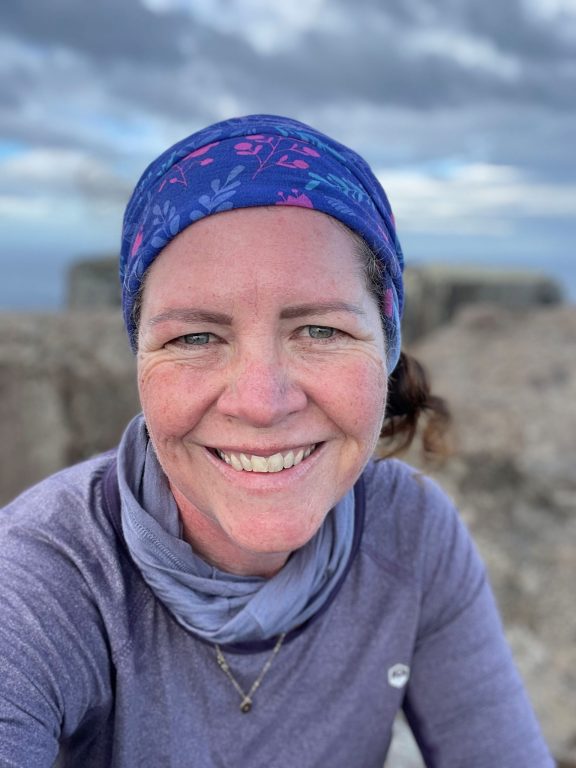
Tricia Velthuizen
Director & Co-founder
Churchill Education

